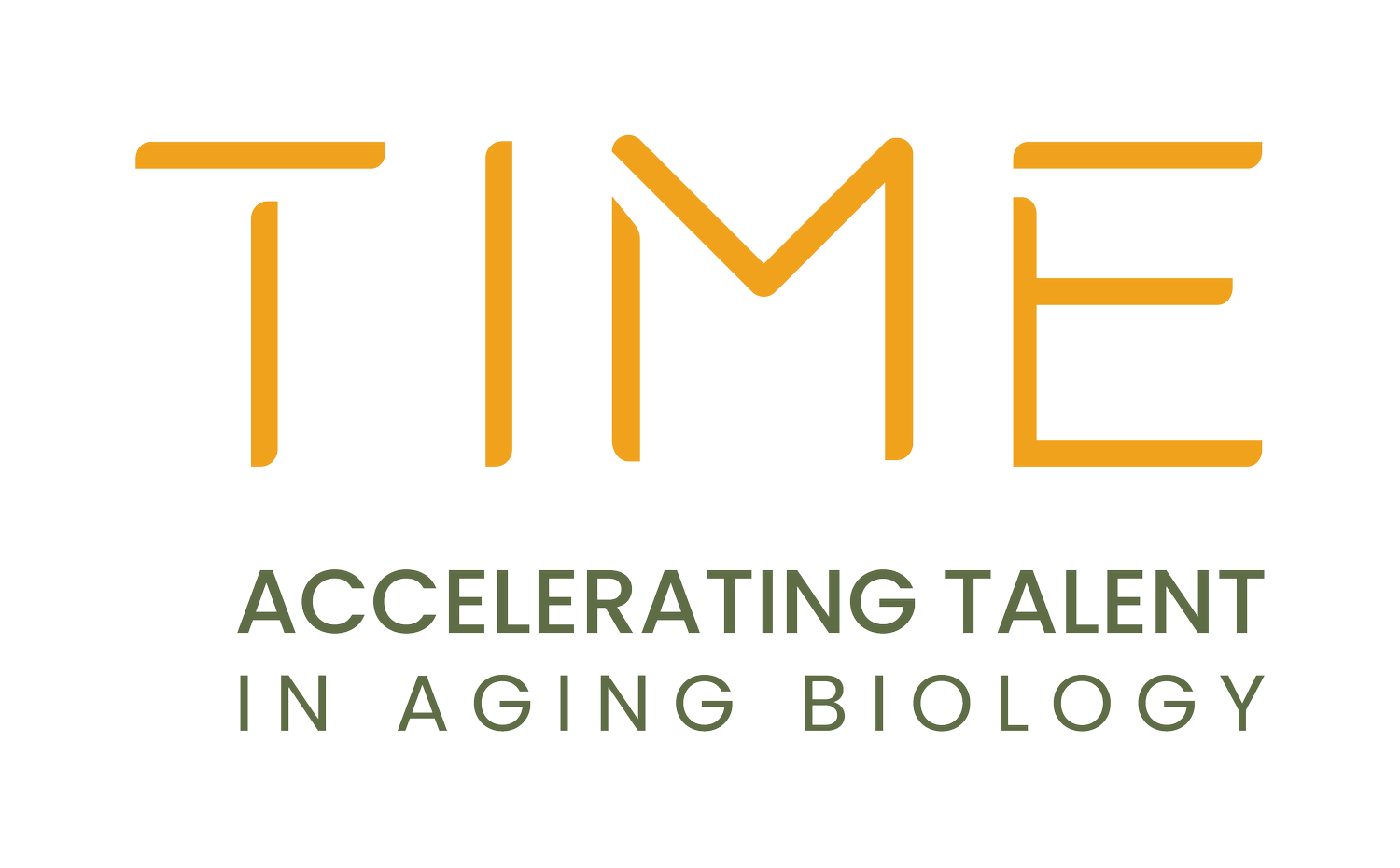Moments in TIME: Fellows Shaping the Future of Aging - Deniz Yagmur Urey
“The TIME Fellowship shaped my academic journey, connecting me with a community of passionate young researchers and mentors.”
At the TIME Initiative, we’re proud to showcase the work of our fellows who are driving innovation in aging biology research. Today, we feature TIME Fellow Deniz Yagmur Urey, who is making strides in understanding cognitive decline and Alzheimer’s Disease through her work in synaptic proteomics. Deniz recently graduated from Stanford University and started her PhD at Columbia University.
Q: Can you tell us about your current research?
"I’m researching the mechanisms behind cognitive decline by analyzing synaptic proteomics in cerebrospinal fluid and blood plasma in humans. Our project proposes a synaptic proteomics-based signature for cognition that can predict the onset and progression of Alzheimer’s Disease (AD) beyond the current gold-standard biomarkers. We also found that synaptic dysfunction is a core driver of AD dementia, which could serve as a promising therapeutic target for promoting cognitive resilience."
Q: Why is this work so important, and what impact do you hope it will have?
"This research could transform the way we understand and treat Alzheimer’s Disease. By identifying synaptic protein signatures, we may be able to detect cognitive decline earlier and potentially intervene with new treatments that target the synaptic mechanisms driving dementia."
Q: What have been some of your key achievements so far?
"I co-authored our manuscript titled ‘Organ aging signatures in the plasma proteome track health and disease,’ which was published in Nature. Additionally, I’m a co-author of two other manuscripts under review: ‘Synapse protein signatures in cerebrospinal fluid and plasma predict cognitive maintenance versus decline in Alzheimer’s Disease’ and ‘Plasma proteomics in the UK Biobank reveals youthful brains and immune systems promote healthspan and longevity.’"
Q: What is your long-term vision for your work in aging biology?
"Aging starts at birth. I believe that the mechanisms behind neural development and neurodegeneration can be better understood by tracking synaptic activity over a person’s lifetime. I hope that by analyzing these activities, we can find specific targets for personalized preventative medicine and therapies."
Q: What inspired you to get involved in research?
"I’ve always been fascinated by how small-scale cellular malfunctions can have such devastating effects on people’s lives. I began my research journey studying breast cancer cells at Dr. Utkan Demirci and Dr. Gozde Durmus’ Labs. Later, I joined Dr. Tony Wyss-Coray’s Lab at Stanford University to study Alzheimer’s Disease. Now, I’m starting my PhD in Neurobiology and Behavior at Columbia University, where I’ll focus on cognitive models behind psychiatric disorders."
Q: How has the TIME Fellowship impacted your career?
"The TIME Fellowship gave me the chance to meet people working in various areas of aging biology, which significantly broadened my appreciation of the field. The mentorship, community, and funding helped me pursue my lab research during my senior year and navigate my graduate school applications. This fellowship has truly shaped my academic journey."
